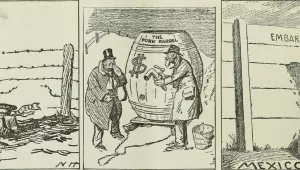The just deposed GM leadership team has been in control for nearly a decade. During this period, market share, profitability and stock price have declined precipitously, while debt has risen dramatically. One of the fundamental issues raised by the economic crisis, primarily in the financial sector but also in failing industries like automobile industry, is: Where was the board of directors to set meaningful performance goals (not simply stock price) and hold business leaders accountable? This question, in turn, has raised even more fundamental issues about whether, despite endless governance writing, conferences and academic centers, corporations are capable of governing themselves when hard decisions need to be made.
One important perspective on the Obama administration's decision about transforming the GM leadership and Board is a demand for accountability. While the failures of the past decade form the critical backdrop, the administration's "Determination of Viability Summary" holds GM accountable for the failures of the "Restructuring Plan Report" submitted on February 17, 2009, pursuant to the US-GM loan agreement signed at the end of last year. Simply stated, that government summary finds the GM report unrealistic in assumptions about market share, price, brands, dealers, Europe, product mix and legacy costs---and far too slow in its actions. That Ford's new management team is not seeking bail-out funds is the strongest argument that the time for accountability has arrived. This is not change for change's sake.
Of course, from a different perspective, this is all about negotiations (or, when the government is involved, politics). It is a negotiation with the GM stakeholders (especially the unions, bondholders and dealers) to make faster, bigger voluntary moves in 30 days to avoid the more unpredictable and potentially Draconian rigors of formal bankruptcy (even if on an expedited basis). It is a negotiation with the a broad spectrum in Congress to show reluctance to throw more good money after bad and to base the future on realistic plans, while holding out hope that GM can rise again (and get more durable financial assistance from the taxpayers).
It is, ultimately, a negotiation with the American people to see if combining hard actions now with the prospect of more support under specific conditions later can, in the midst of the economic maelstrom and now too-numerous-to-count government anti-recession programs, create political support down the road for longer-term federal involvement in GM. (On the subject of negotiation: it would be enjoyable to be in Fiat's position when Chrysler comes to negotiate a joint venture with the alternative that the government will cut off support if no deal is done.)
In his announcement, President Obama gave the expected disclaimers: "The United States government has no interest in running GM. We have no intention of running GM." His auto and financial analysts have found GM's restructuring plan wanting. So a new plan will be developed. But they also found GM's execution too slow. The unanswered question today, with removal GM's leader, is who will take the GM helm, and join the GM Board, actually to "operate" the new GM for the longer term---and under what kind of "super-board" operational oversight from Uncle in Washington. A new age of GM accountability is dawning, but how will it work is in execution, not just in planning.
Heineman, Ben. “It's About Accountability, Stupid.” On Leadership at washingtonpost.com, March 30, 2009




